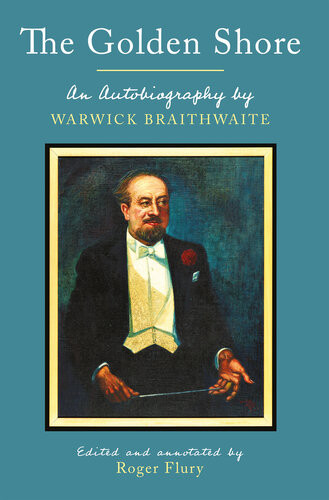

Most ebook files are in PDF format, so you can easily read them using various software such as Foxit Reader or directly on the Google Chrome browser.
Some ebook files are released by publishers in other formats such as .awz, .mobi, .epub, .fb2, etc. You may need to install specific software to read these formats on mobile/PC, such as Calibre.
Please read the tutorial at this link: https://ebookbell.com/faq
We offer FREE conversion to the popular formats you request; however, this may take some time. Therefore, right after payment, please email us, and we will try to provide the service as quickly as possible.
For some exceptional file formats or broken links (if any), please refrain from opening any disputes. Instead, email us first, and we will try to assist within a maximum of 6 hours.
EbookBell Team

4.4
12 reviewsNew Zealand-born conductor, Warwick Braithwaite, was a seminal figure in the musical life of Britain for more than fifty years. He studied at the Royal Academy of Music in London, and went on to tour with Joseph O'Mara's Grand Opera Company. At the time, he was believed to be the country's youngest professional conductor.
Braithwaite worked with all the major British orchestras and many of the greatest artists of his day. He was associated with important musical institutions at key moments in their development, becoming the first Musical Director of the Welsh National Orchestra, and guiding the Scottish Orchestra through the difficult years of WWII. Much of Braithwaite's career was spent conducting opera for Sadler's Wells, Welsh National Opera, Carl Rosa, and Covent Garden. He also worked with the Royal Ballet in London, and toured with them to Germany, France and Italy. Extensive post-war engagements took him to Australia, New Zealand, South Africa, Iceland and the Republic of Ireland.
Editor Roger Flury, former Curator of Music at the Alexander Turnbull Library in Wellington, had unique access to Braithwaite's archive – including the conductor's substantial autobiography, published here for the first time. Flury contributes additional chapters covering Braithwaite's musical legacy in Wales and his later years with Sadler's Wells Opera. The volume is enriched with several important appendices charting Braithwaite's family, his significant recording career, his writings and – most important of all – his many compositions. Braithwaite emerges as an unsung hero in the history of music-making in the first half of the 20th century.